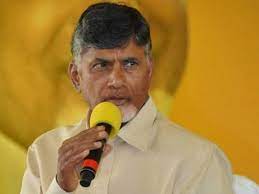According to PM Modi, the world is praising the Indian version of “Garib Kalyan”
On Thursday, Prime Minister Narendra Modi said that international organizations were discussing how they might learn from India’s successes in many disciplines, and that this was possible because every part of the nation was given equal importance in terms of growth and the care of the poor under his administration.
Speaking at a gathering at Kodatarai village, Raigarh district, he referred to Chhattisgarh as the nation’s growth engine.
On this occasion, the PM launched significant rail projects worth around Rs 6,350 crore and laid the cornerstone for “critical care blocks” with 50 beds each in nine districts of Chhattisgarh, where assembly elections are scheduled at the end of the year.
He also gave the individuals who had been tested 1 lakh counseling cards for sickle cell disease.
“The Indian model of ‘Garib Kalyan’ (welfare of the destitute) is not only being observed by the whole globe, but it is also receiving accolades. All of the heads of major nations who came to New Delhi for the G20 meeting were pleased by India’s development initiatives and Garib Kalyan, he added.
“We have seen that 13.5 crore individuals have escaped poverty in only five years. This occurred as a result of welfare programs the BJP administration introduced for the benefit of the underprivileged, he said.
The success of India is being discussed by international organizations today, and according to Modi, this is because every state and region of the nation receives equal attention for development.
The prime minister said that over the last nine years, the federal government has consistently worked to develop Chhattisgarh, which is presently governed by the Congress, on all fronts, and the fruits of that vision and policies are now evident.
“Today, a new chapter is being written in the development of Chhattisgarh’s railway network,” he said, adding that when projects are finished, the train network would be improved, which will ease congestion on the Bilaspur-Mumbai line’s Jharsuguda-Bilaspur segment.
Similar to how railroad lines, which have already begun, and train corridors, which are now being built, can help Chhattisgarh’s industrial growth.
In addition to offering convenience to the people of Chhattisgarh, he added, the routes’ completion will also bring about new job and revenue prospects for the area.
The Prime Minister emphasized the need for all citizens to participate equally in this development process and said that India must become a developed nation in the following 25 years of “Amrit Kaal” (the era that ends with the centennial of independence in 2047).
He highlighted that “we must meet the country’s energy needs and also take care of the environment.”
T S Singh Deo, the deputy chief minister of Chhattisgarh, remarked during the event that the federal government has not been discriminatory towards the states.
“I haven’t seen any prejudices in my experiences. The Center has cooperated if we, as state governments, have worked with it and asked for anything. With mutual collaboration, I think we can move this state and this nation forward, stated Singh Deo.
Senior Congressman Singh Deo was spotted on the dais shaking hands with the PM when he finished speaking.
The Chhattisgarh East Rail Project Phase-I, the third rail line between Champa and Jamga, the third rail line between Pendra Road and Anuppur, and the MGR (Merry-Go-Round) system linking Talaipalli Coal Mine to NTPC Lara Super Thermal Power Station (STPS) were among the projects that were officially opened.
The ambitious PM Gati Shakti-National Master Plan for multi-modal connectivity is driving the development of the Chhattisgarh East Rail Project Phase-I, which consists of a 124.8 km rail line from Kharsia to Dharamjaigarh, a spur line to Gare-Pelma, and three feeder lines linking Chhal, Baroud, Durgapur, and other coal mines.
In nine districts around Chhattisgarh, the ‘critical care blocks’ with 50 beds each would be constructed. At a cost of more than Rs 210 crore, the nine critical care blocks would be constructed as part of the Pradhan Mantri-Ayushman Bharat Health Infrastructure Mission (PM-ABHIM) in the districts of Durg, Kondagaon, Rajnandgaon, Gariaband, Jashpur, Surajpur, Surguja, Bastar, and Raigarh.
Counseling cards were given out to the community who had been tested as part of a nationwide initiative with the goal of addressing sickle cell disease-related health issues, particularly among the tribal population.
The National Sickle Cell Anaemia Elimination Mission (NSAEM)’s tested population received 1 lakh counseling cards from the PM.







